An autographed postcard by scientist Albert Einstein
- Pickup from gallery : Set a route
- Courier delivery
- Delivery by a transport company in the shortest possible time
- VIP air delivery
- Delivery rates
| Brand: | Stargift |
| Material: | paper |
Nothing was found for your request. Try to change the wording or go to the Catalog
Also you may call +7 (495) 927 60 67 and we will help you choose the best gift.
Catalog
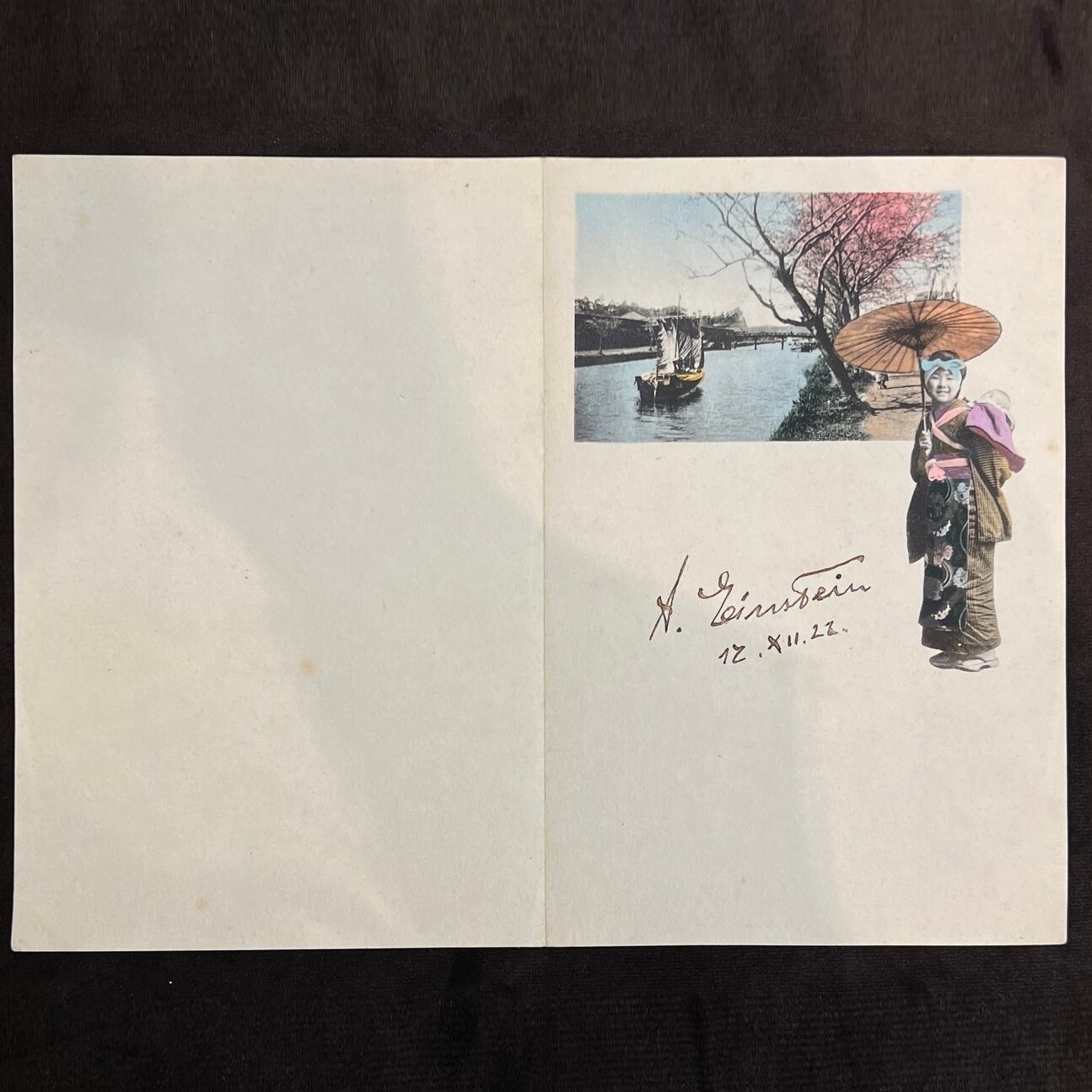
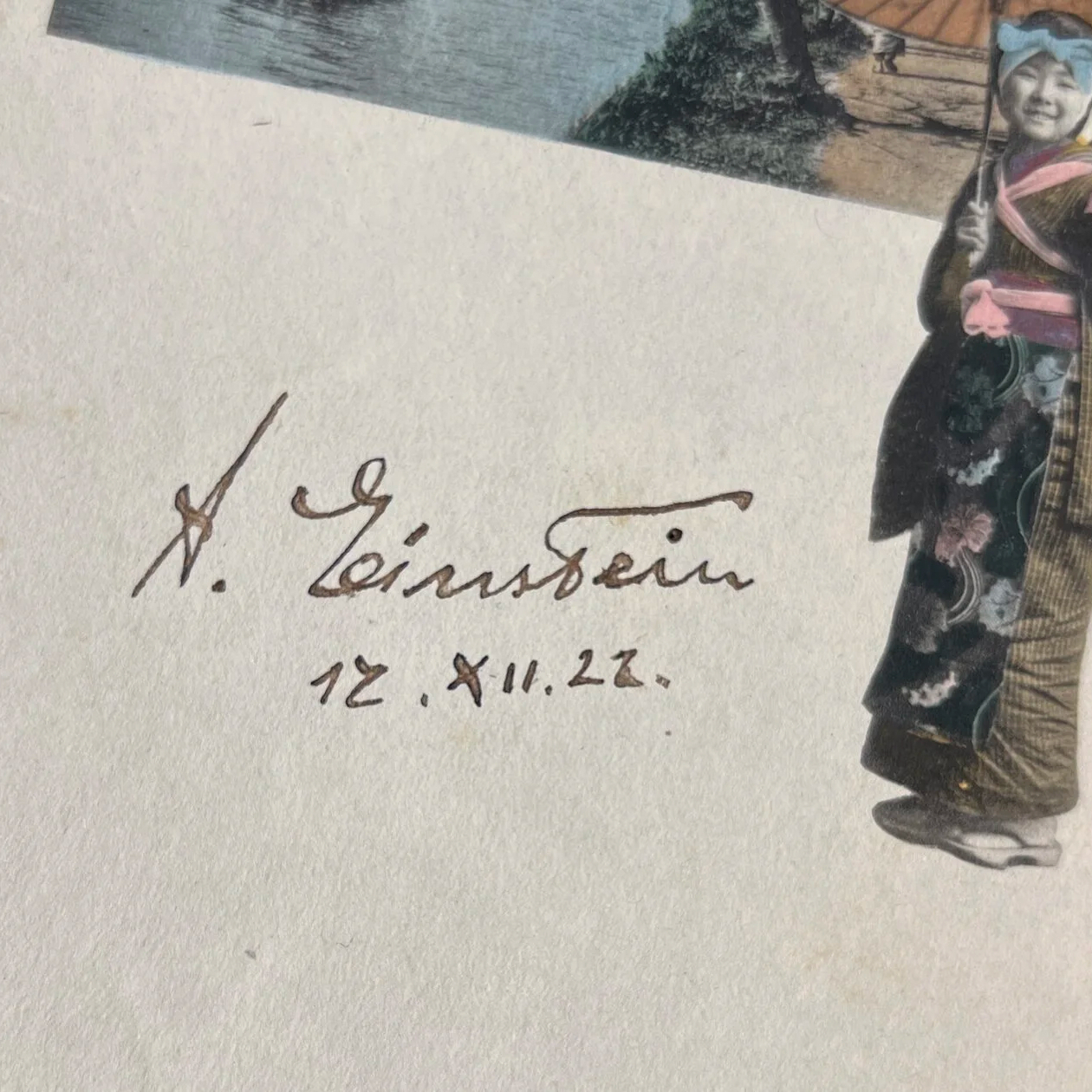
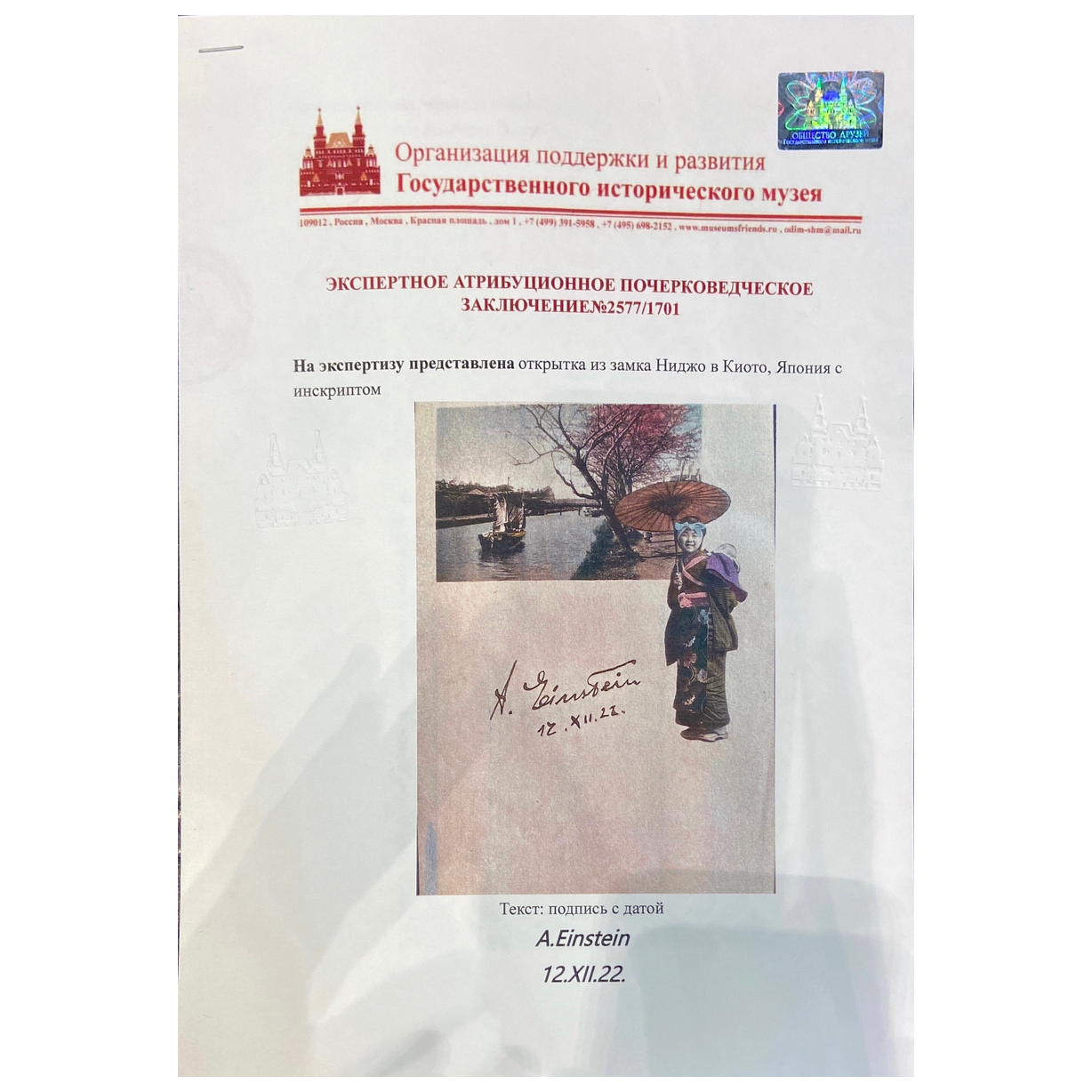
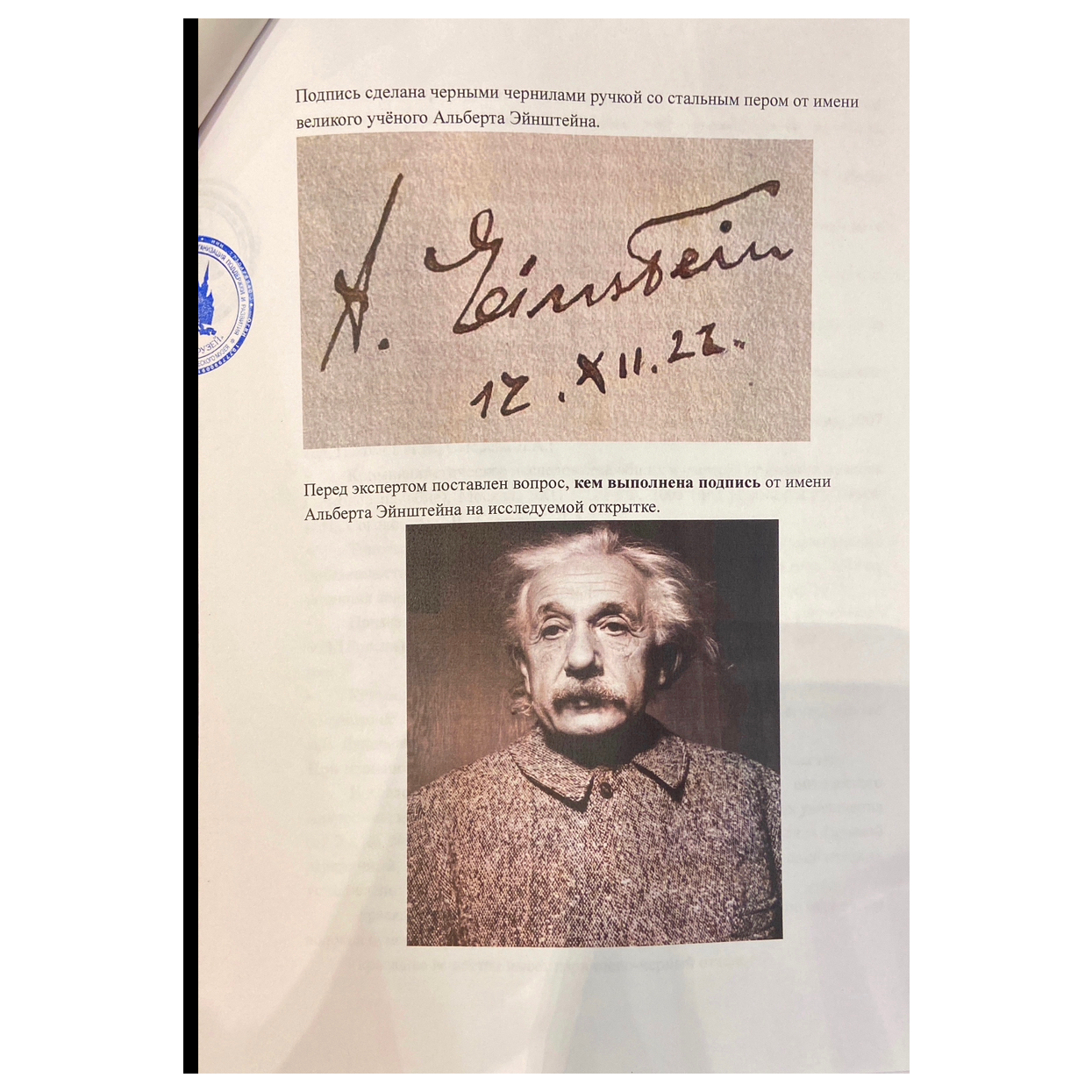
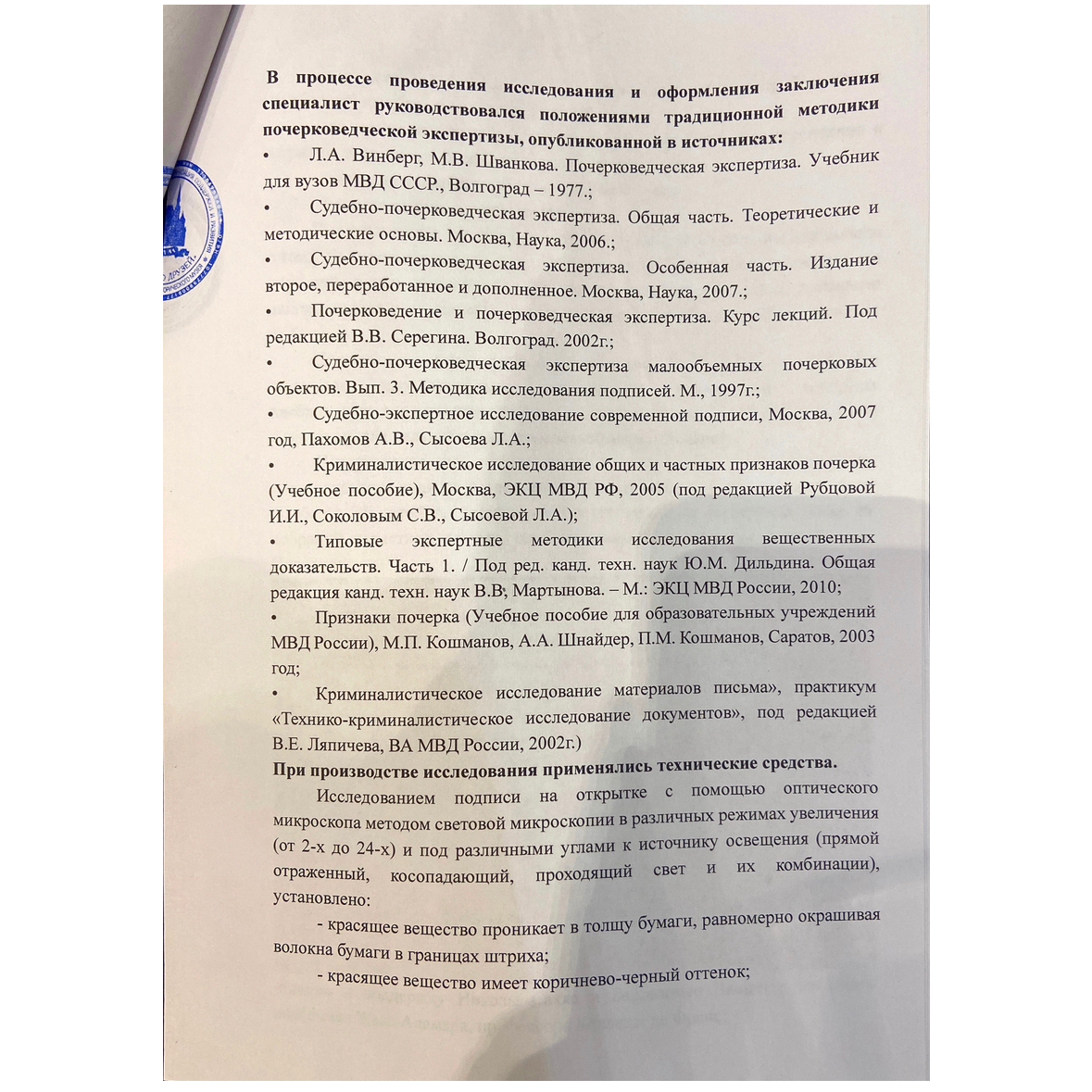
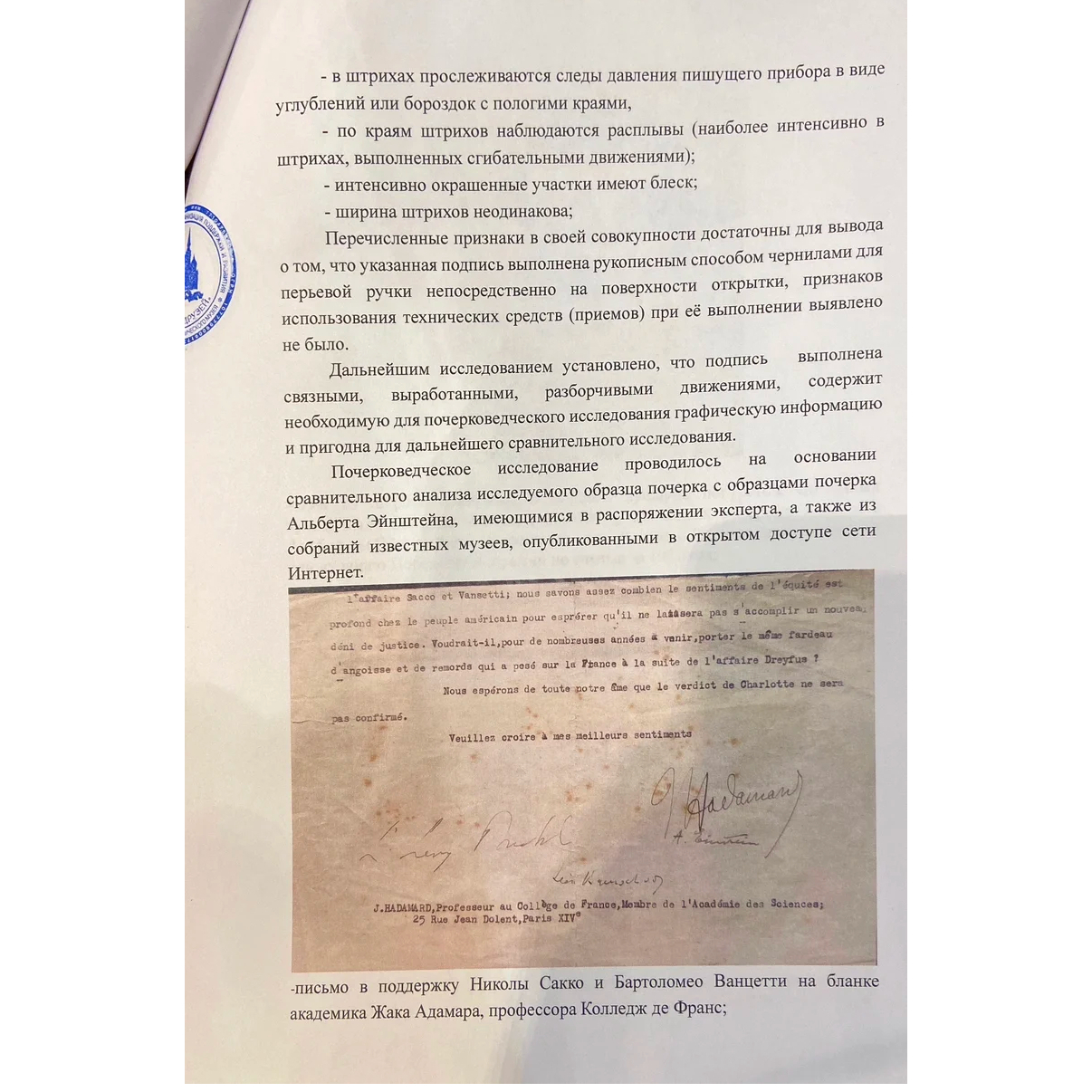
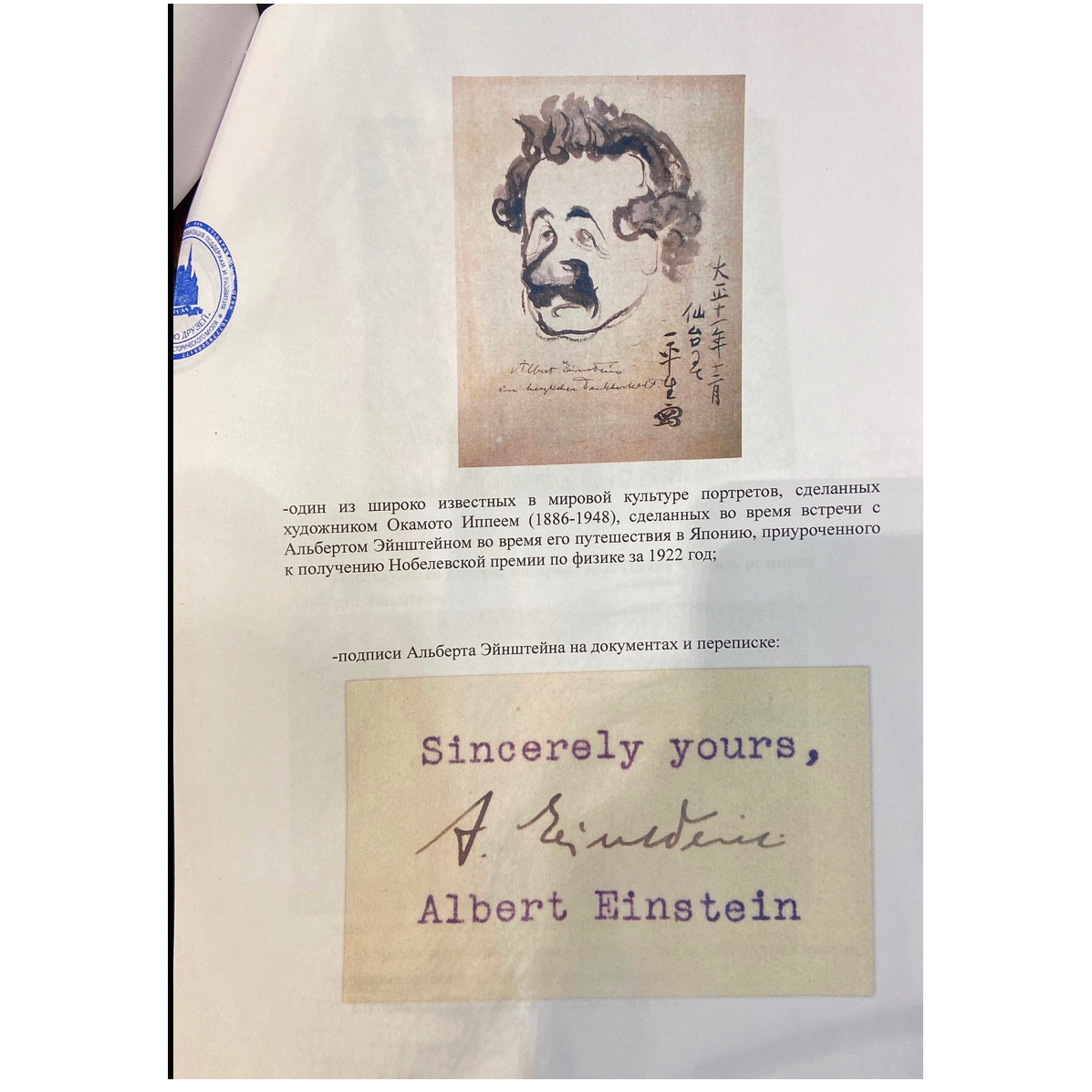
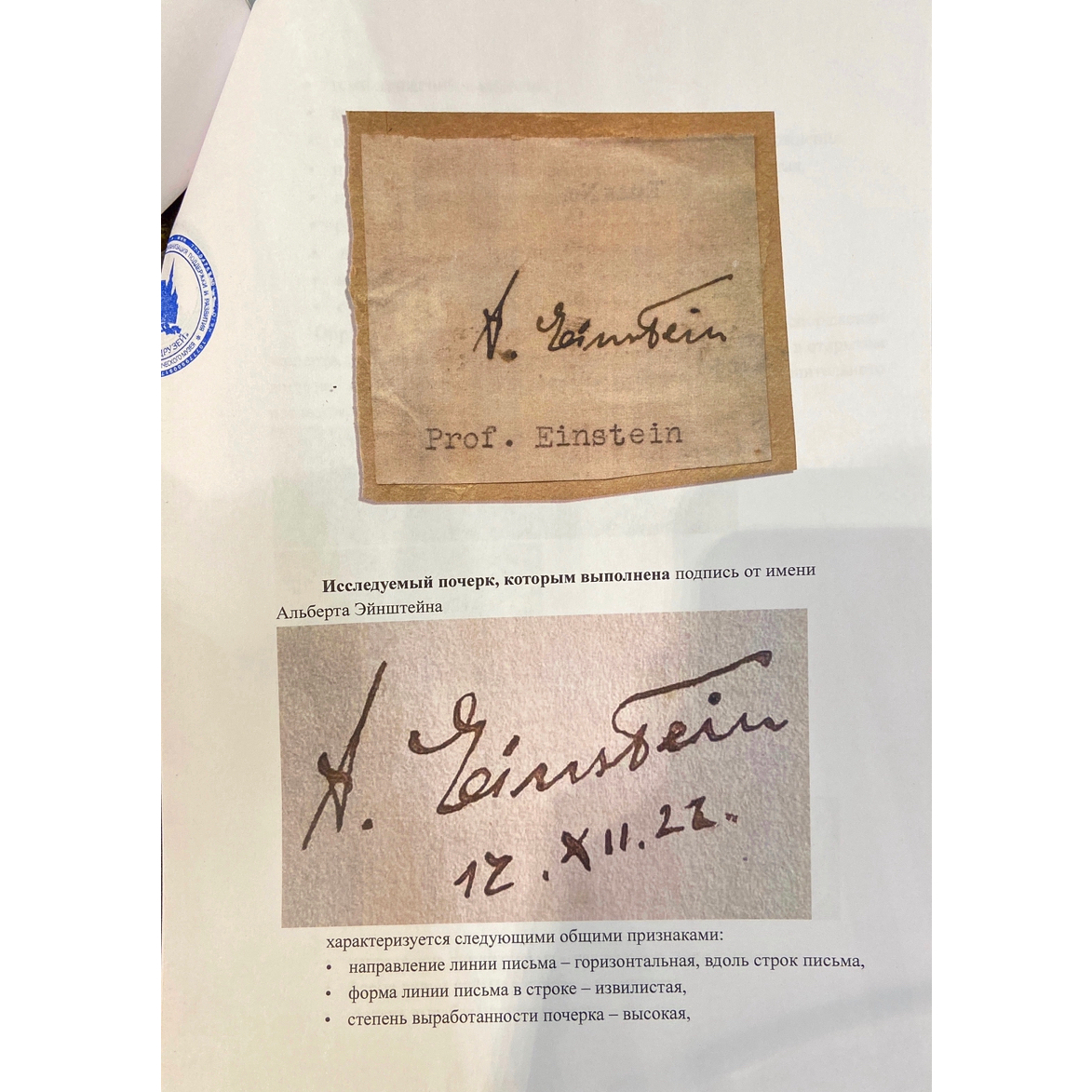
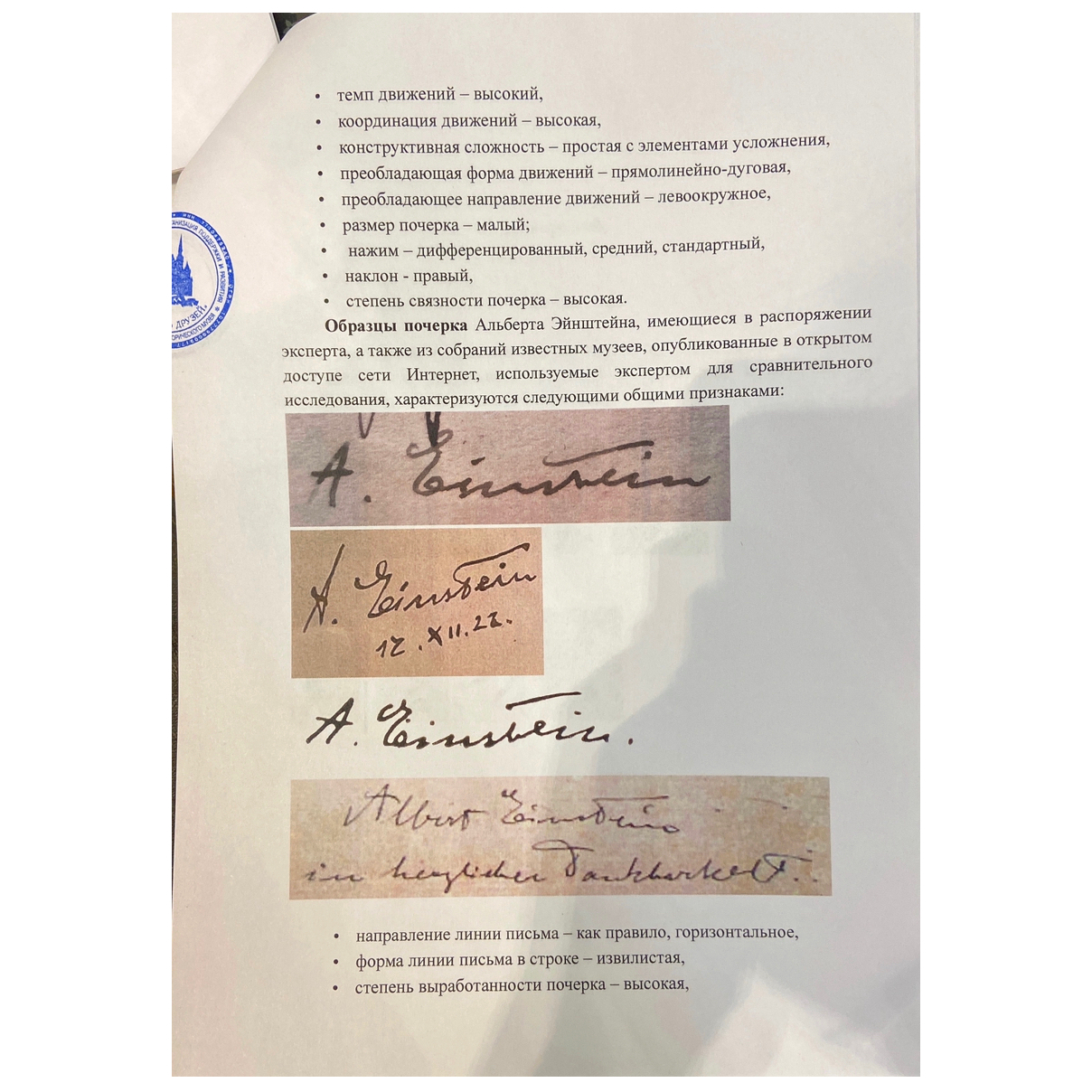
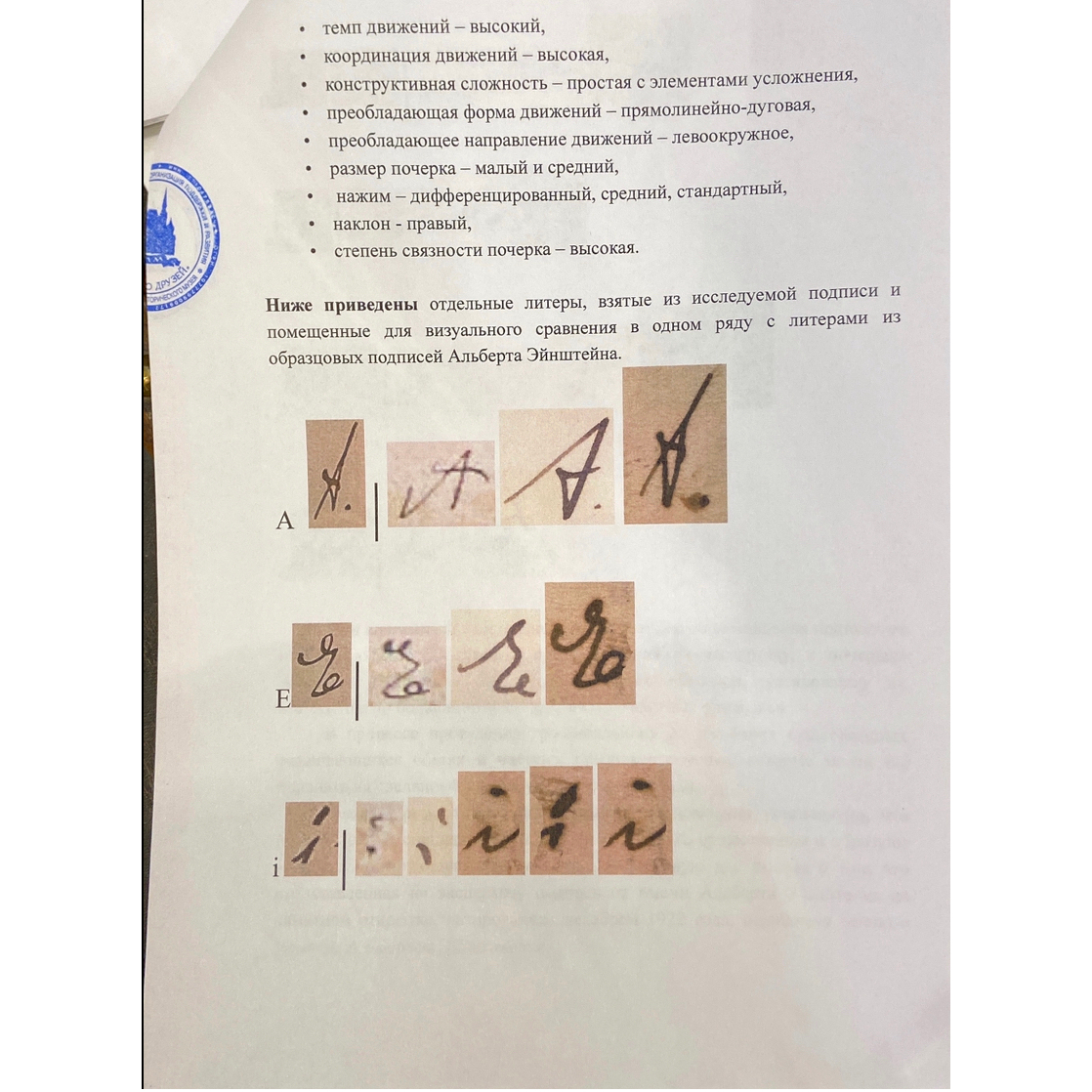
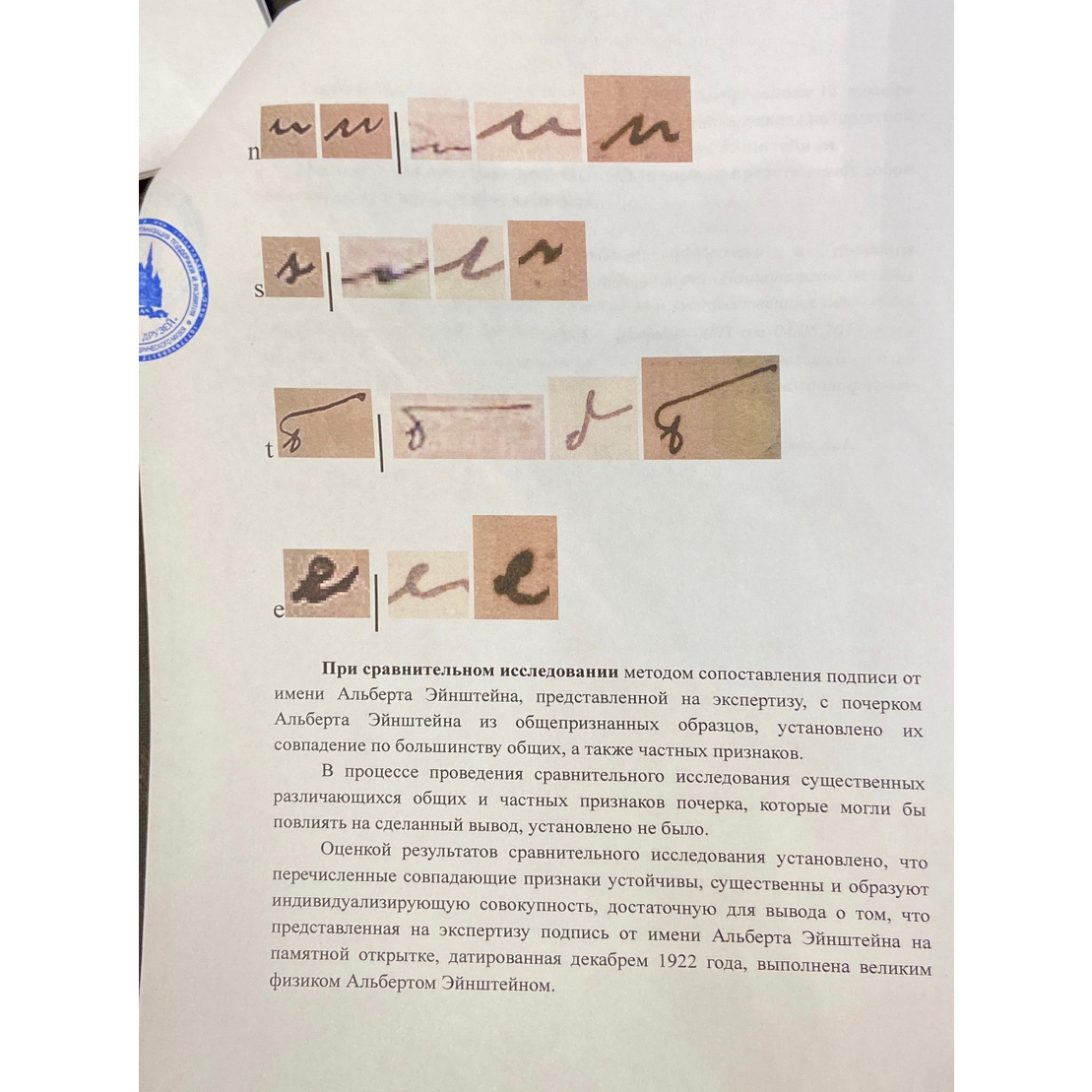
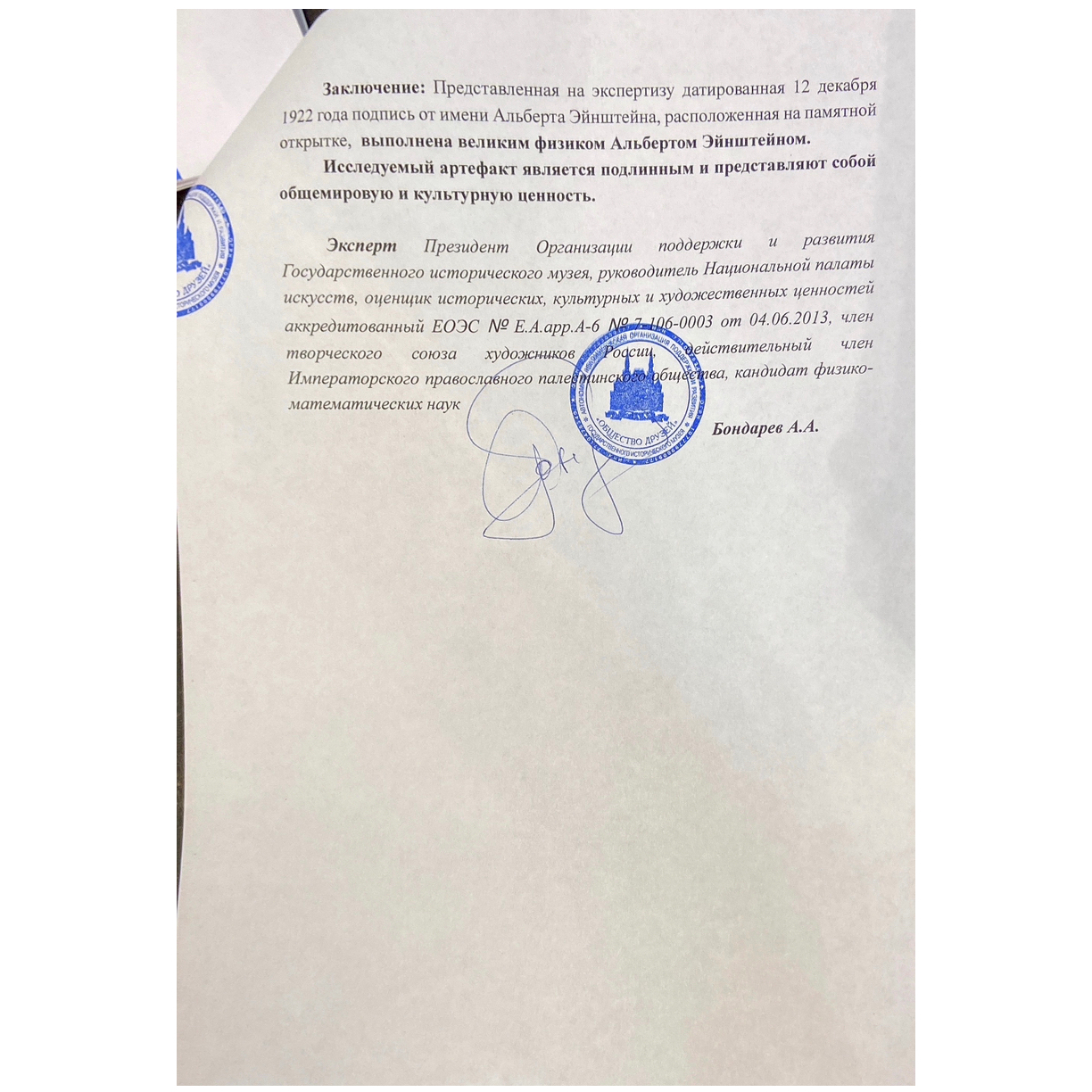












A great thinker, a revolutionary of science, a man who managed to look beyond the usual picture of the world, where space and time turned out to be only an illusion of old ideas — all this is Albert Einstein. His name became the epitome of genius, intellectual freedom, and a daring search for truth, and his writings forever changed the course of human thought, forcing us to look at the nature of reality in a different way. He is not just a scientist, but a figure comparable to the titans of the Renaissance who transformed the world. This work contains the breath of his era, its spirit, its impulse to knowledge.
The rarest collectible artifact is a postcard from Nijo Castle in Kyoto, signed by the hand of a great scientist. On a clear, light background is a color lithograph depicting a Japanese landscape and a woman in a traditional kimono, restrained like the philosophy of the East itself. She holds an umbrella in her right hand, giving the stage a special touch of sophistication. This postcard bears the imprint of the era when Japan admired Einstein, listening to his lectures, absorbing his ideas, meeting him with honors worthy of the emperor of science.
Einstein's autograph, left in black ink, makes this item exceptional. The signature is dated December 12, 1922, when the scientist traveled to Japan, having just won the Nobel Prize. This ink is not just a stroke on paper, but the personal touch of a genius, the rarest trace of his presence. He could hold this postcard in his hands, could look at it thoughtfully, could stop running his thoughts for a moment before signing his name.
Einstein's trip to Japan lasted six weeks. He spoke to thousands of audiences, explaining the laws of relativity, changing the worldview of listeners, breaking into the established picture of the world like a supernova outbreak. His very first performance took place at Keio University, and his name was pronounced with reverent admiration at all levels of society. Perhaps this postcard was part of that triumphal procession, it could have been given to Einstein as a sign of respect, it could have been a souvenir of his Japanese meetings.
The smooth paper, the artful lithography, the filigree calligraphy of his signature — everything here breathes historical authenticity, becomes a bridge between the past and the present. This artifact is more than just a postcard. It takes you back to the time when a man who revealed the secrets of space and time walked through the streets of Kyoto, looked at cherry blossoms, communicated with Eastern thinkers, leaving behind not only scientific works, but also such small, precious traces of his stay.
The accompanying document from the State Historical Museum confirms the authenticity of the exhibit, but its value goes far beyond expert opinions. This is an opportunity to touch history, to become the owner of not just an artifact, but a part of Einstein's world. This is a symbol of power over time, power over the past, and elite access to a relic that even museums bow to. This is an intellectual challenge, a sign of belonging to the circle of the chosen. Exceptional in importance, it not only has material value, but also offers a deep emotional connection with one of the most prominent personalities of the 20th century. It's a story frozen in ink, embodied in paper, and preserved for those who can see through the ages.
| Brand: | Stargift |
| Material: | paper |
A passport is attached to products that cost more than 10,000 ₽:

Вход и регистрация происходит по номеру телефона.

























| Pickup from the gallery | free |
| In the next day (6 March) | 300 ₽ |
| On the day of the order (5 March) | 400 ₽ |
| Within 2 hours (5 March) | Check with the manager |
| Evening delivery (5 March) | Check with the manager |
| up to 6 km from MKAD (5 March) | 600 ₽ |
| from 6 to 10 from MKAD (5 March) | 900 ₽ |
| Over 10 km from MKAD (5 March) | Check with the manager |
| VIP, by courier (today)(5 March, today) | from 3 000 ₽ (check with the manager) |
| The transport company | according to the tariff of the TC |
Courier delivery is carried out when ordering for a total amount of 5000 ₽
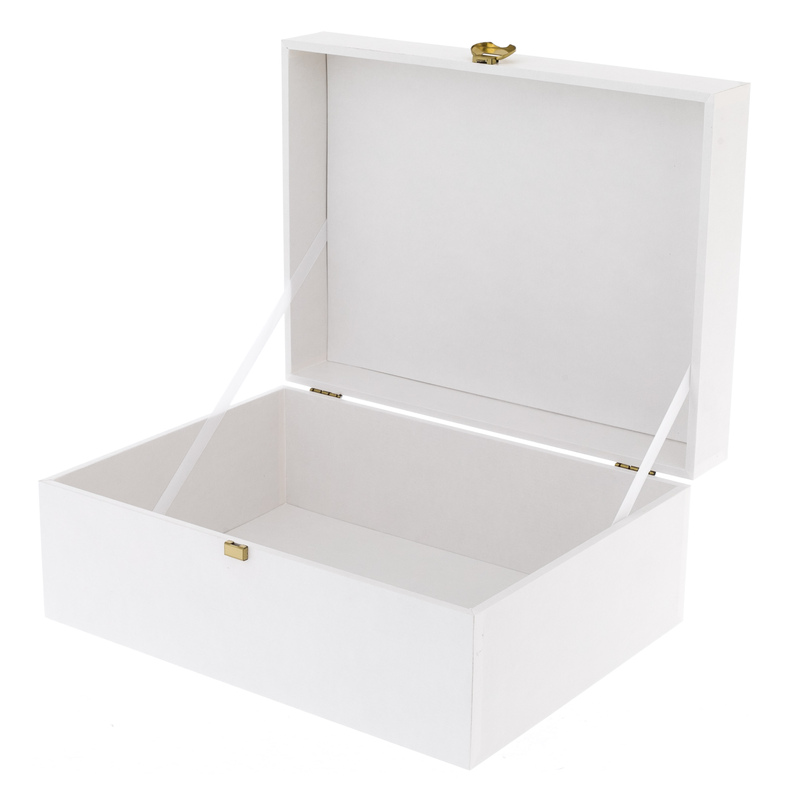



Вход и регистрация происходит по номеру телефона.

The manager will contact you at to confirm the order within 15 minutes during business hours.
| Payment: | By card |
| The amount: | 0,00 |
| Shipping method: | VIP air delivery |
| Delivery address: | New Vasyuki, str. Chairs, 12 |
| Delivery date: | 24.12.2021 y. |
| Delivery Time: | from 17:00 to 21:00 |
| Recipient: | John |
| Telephone: | John |
| Mail: | John |
| Comment: | John |
Чтобы заказать изделие, заполните форму и отправьте нам. В течение 10 минут в рабочее время специалист свяжется с вами для подтверждения запроса!
| Изделие: | Статуэтка железнодорожнику «Стрелочник» |
| Количество: | От 1шт. |
| Упаковка: | Стандартная (бесплатно) |
| Услуги: | 2 |
Чтобы узнать стоимость изделия, заполните форму и отправьте нам. В течение 10 минут в рабочее время специалист скажет стоимость.
| Выбранное изделие: | Артикул: XXX-XX |

You can always contact us
+7 (495) 927 60 67How is it more convenient for you to contact us?